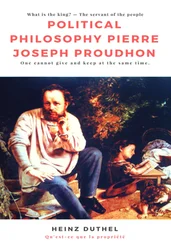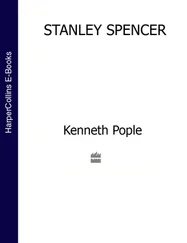The American Revolution and the Founding
In the mid-eighteenth century, Great Britain’s North American colonies were increasingly implicated in that era’s global imperial wars, struggles, and crises. The metropole’s initial oversight was light, and its authority weak: while not forgotten, those colonies were an afterthought. To be sure, they were enmeshed in a web of (it was said, mutually beneficial) imperial regulations concerning imports and exports. But the colonies were taxed only lightly, and left largely to govern themselves. Each colony had an elected representative legislature that directed its own internal affairs. Their economies thrived, and the population grew.
Things began to change, however, with the French and Indian War (1756–1763), the North American front of the globe-spanning Seven Years War, which ultimately pitted a coalition led by Great Britain against a rival coalition led by France. Britain won the war, leading France to surrender nearly all of the territory it had previously claimed in North America east of the Mississippi River, including in what is today Canada. This drew Britain into an increased focus on its North American colonies and on the extensive – and expensive – responsibilities it now bore for defending them. Britain argued that it had shielded the free Protestant colonies – at the urging, for that matter, of New Englanders – from the threat of tyrannical popery (French Canada), marauding (French-allied) Indians, and foreign attacks and bids for conquest. The British believed that, under these new circumstances, it was only proper for the colonies to bear some of the massive costs of Great Britain’s titanic war debts, and their own self-defense.
A succession of revenue acts followed across the 1760s and 1770s, sparking increasingly spirited colonial resistance. A cascade of pamphlets – the most popular form of political writing at the time – flowed, most prominently in resistance to the direct tax on printed material authorized by the Stamp Act (1765). The debate turned on the power of Parliament to tax the people of the North American colonies, when the colonists did not have power to vote for and elect members of Parliament. The colonists argued that they were being taxed without representation, and hence their property was being taken without their consent. If Parliament could strip them of their natural, pre-political rights to property (Locke), it was said, Parliament, by implication, had free rein to strip them of any and all of their God-given natural rights – to say nothing of their rights as British subjects.
The argument expanded over a series of thrusts and parries concerning subsequent revenue acts (and partial retreats, but with a British refusal to cede the authority to tax). These included not only boycotts and other incendiary protests (some led in Boston by Samuel Adams’s Sons of Liberty), but also outsized explosions of rage and violence against what many were now complaining was a system of unjust and, finally, intolerable rule by a distant and tyrannical government. English “country” party and republican political thought (James Harrington, Algernon Sydney, and others) had descried the corruption of the distant urban elite governing class under the sway of and resident at the King’s “Court.” In seeking to understand their growing list of grievances and predicament, the American colonists drew from this thought, in the process forging penetrating new reflections on sovereignty, government by consent, representation, and rights, with frenzied outrage over ostensible depredations of rights that, in a less fraught context, might have seemed like lesser slights. (An inflamed “rights consciousness,” many have observed, has continued to characterize the American temperament.) In time, as the British increasingly took extraordinary steps to suppress resistance – including closing Boston harbor; altering and then suspending Massachusetts’s colonial charter to reinforce their control; landing waves of troops, some of whom were coercively quartered in colonial residences; disarming colonial militias; and expatriating rebellious colonists for trial in England – a critical mass of the most vocal colonists moved from complaining of transgressions of their traditional, common law and natural rights as Englishmen under the British Constitution to contemplating a permanent political break.
The First and Second Continental Congresses were convened (1774, 1775) to coordinate support for the resistance in Massachusetts, and, before long, a military battle broke out between British troops and the colonists at Lexington and Concord which is generally taken as the start of the American Revolution. At this point, however, debates were still ongoing in the colonies about whether to seek reconciliation (as initially advocated by John Dickinson, James Wilson, and Thomas Jefferson, among others, and a clear majority of the delegates to the Second Continental Congress) or separation (advocated by radicals like Samuel Adams and John Adams). Samuel Adams had already authored “The Rights of the Colonists” (1772), in which, in Lockean high dudgeon, he denounced the British for trenching on the rights of the American colonists to life, liberty, and property (with the rights to representation, toleration, and conscience thrown in for good measure, although Adams was careful to acknowledge a duty to pay taxes in support of a legitimate government). Where fundamental rights had been violated, Adams insisted, there was a clear right of revolution. By contrast, even two years later, while denouncing “parliamentary tyranny,” in “A Summary View of the Rights of British America” (1774), Thomas Jefferson appealed to King George III to intervene to settle the ongoing grievances. In his appeal, Jefferson underlined the individualist roots of the colonial settlement, where the colonists had labored unceasingly and sacrificed much to build their own societies. But Jefferson too noted the right to revolution, cheekily citing England’s own Glorious Revolution (1689) as a case in point.
The game-changer, however, was the anonymously published incendiary pamphlet Common Sense (1776), which turned public opinion sharply in favor of separation. Authored by the radical revolutionary Thomas Paine, Common Sense went through fifty-six editions in 1776 alone – selling 120,000 copies in its first three months, and ultimately reaching a total of half a million. “’Tis time to part,” Common Sense unequivocally declared, in the first full-throated call for total independence. In contrast to many others, like Jefferson, far from praising the genius of the British Constitution and appealing to its principles and protections, Paine gave it the back of his hand: he disdained its murky historical roots, its obscure and arcane foundations in the common law, and its unwieldy and ambiguous assemblage of proclamations, statutes, judicial rulings, and traditional practices and precedents, devoid of any clear and readily discernible boundaries, forms, and rules. Paine condemned the elaborate balances the British Constitution had calibrated between the country’s diverse social estates – including aristocracy and hereditary monarchy, no less – which violated fundamental principles of human equality. This was too complicated and opaque, Paine complained. To its great discredit, the British Constitution was not readily knowable by the common man. Its elaborate system of check and balances was, moreover, nonsensical: it was an invitation to illegitimacy and injustice.
In all this, Paine evinced a deep suspicion of government. He drew a sharp distinction between “society” and “government” – the former “a blessing,” the latter, “even in its best state is but a necessary evil, in its worst state an intolerable one.” Government was established by consent for sake of the security and liberty of the people. Besides proving tyrannical, government by Great Britain no longer made sense given the current interests of the North American colonies. An Old World power, Britain, a tiny far-away island, after all, was continually embroiling itself in wars. For all intents and purposes at this point the colonies were a different polity, with their own distinct interests and preferences. They stood ready to stand apart – and up – and govern themselves. The decision to do so, Paine entreated, in an exceptionalist vein, would be a historical event, of great moment both for the American people and the world: “’Tis not the concern of a day, a year, or an age; posterity are virtually involved in the contest, and will be more or less affected even to the end time by proceedings now.” The country, Paine had announced, would be a beacon to the oppressed of the world, to those who yearned to live free.
Читать дальше












